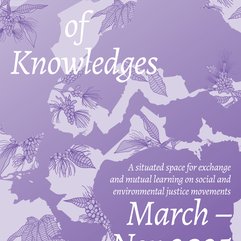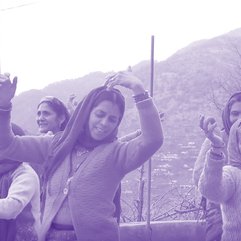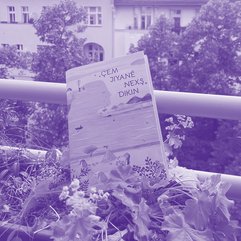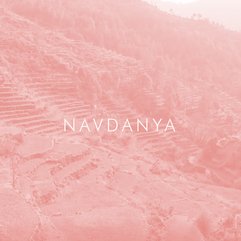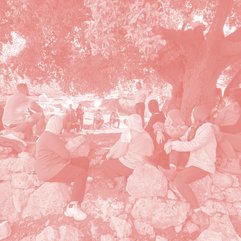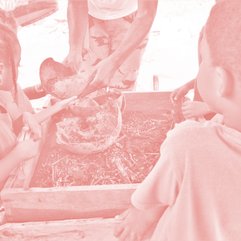Palestinian Experiments in Popular Organizing and Food Sovereignty
Assembly and Grassroots Campaign Supporting Food Distribution initiatives in Gaza
18.00-20.00
Save the Date
for adults
Arabic/in English

This assembly asks:
What would it mean to socially reproduce the struggle?
And how do we build food sovereignty and autonomy amidst catastrophe?
We engage these questions within the context of a grassroots fundraiser supporting food distribution initiatives in Gaza which takes place in the context of Spore’s current exhibition Unsettled Earth.
The event is part of Masha'at, a cross-disciplinary project that unfolds through study, publishing activities, and organizational work. Masha'at investigates the significance of the agrarian within the context of Palestinian anticolonial struggle, engaging with agricultural cooperatives and community organizations across Palestine to examine organizational forms that disrupt dominant relations of labor and property. The project situates its inquiry within a broader speculative study of the Palestinian masha' (commons) as a political horizon, as a praxis and a potential past-future. The masha', in this sense, is engaged not simply as a historical form, but a speculative proposition - linking collective agrarian practices to the prospect of return and reclaiming a non-alienated relationship to land.
We gather to reflect on Palestinian experiences in grassroots organizing, popular education, and food sovereignty in the context of a broader conversation on how to respond to the current political, economic, and environmental conditions in Palestine and the region. This assembly brings together Rami Massad from the Youth Partnership Forum and the Popular Art Center, Haitham Kanaan from Nabat Eco Farm, and researcher and educator Saja Watad at Spore.
Rami will discuss the experience of the Youth Partnership Forum in connecting grassroots groups in Gaza, the West Bank, 48 and the diaspora against a backdrop of geographical fragmentation and engineered isolation. He will also speak on the experience of "liberation villages" within the context of the West Bank - an all-encompassing concept and mode of production that includes the village council, cooperatives, youth clubs, grassroots centers and all communal activities that take place within these frameworks. This form of organizing seeks to strengthen the steadfastness of villages and address the structural challenges posed by occupation policies.
Haitham will share the experience of Nabat Farm in the city of Tamra, which he describes as a living laboratory rooted in daily practice in the land. Saja, who is researching the history of wheat in Palestine and the preservation of indigenous seeds, will provide insight into the food sovereignty and popular education projects she has worked on in various Arab villages and schools in the occupied territories, in addition to her collaboration with Nabat Farm.




